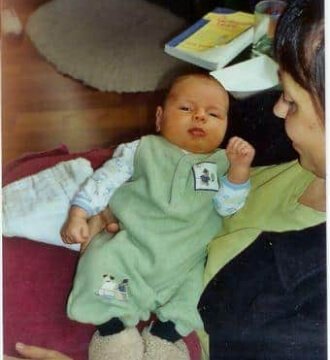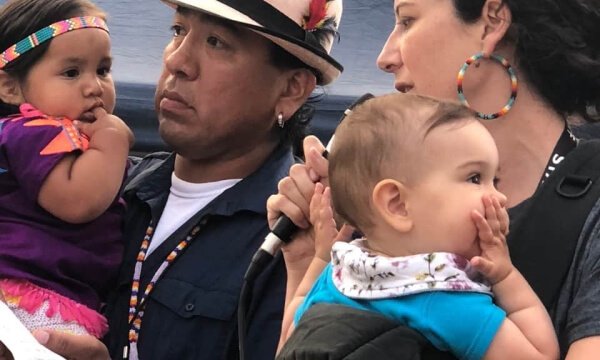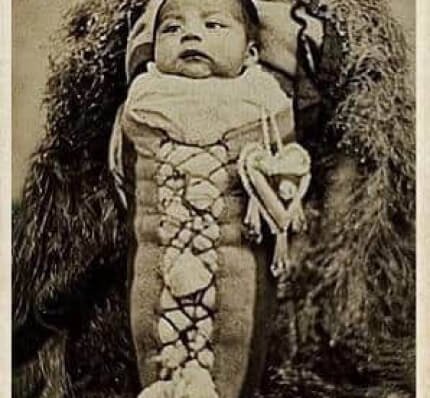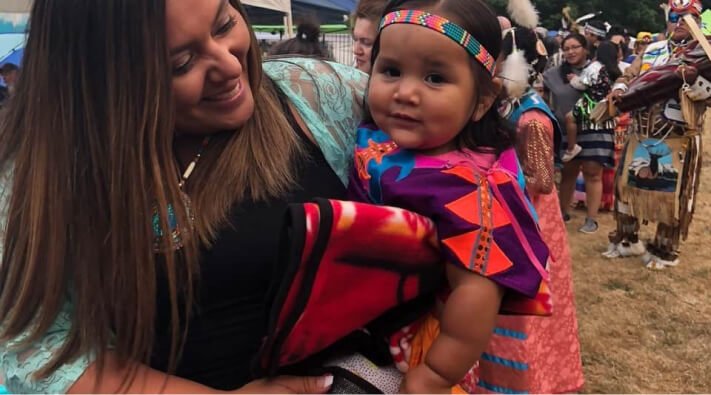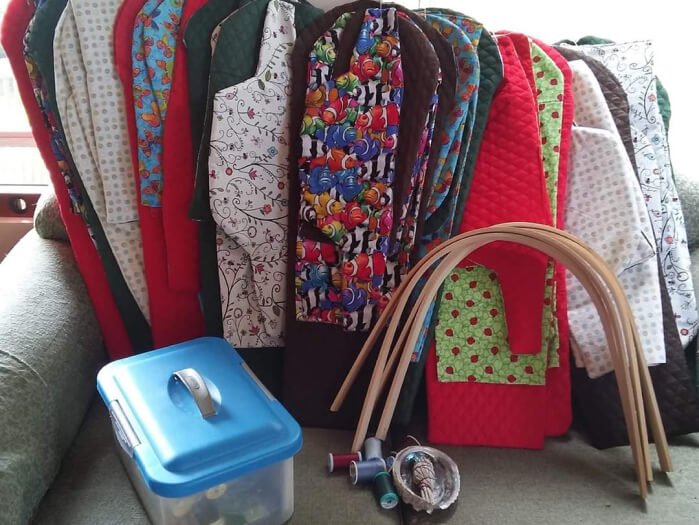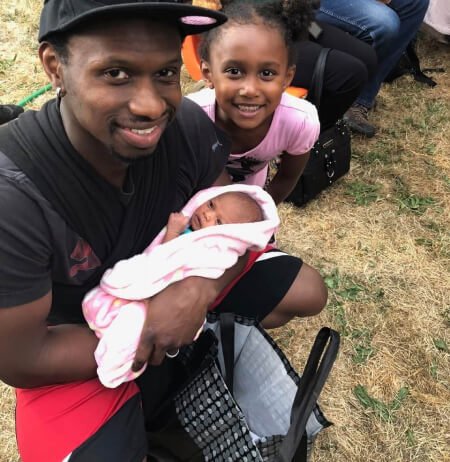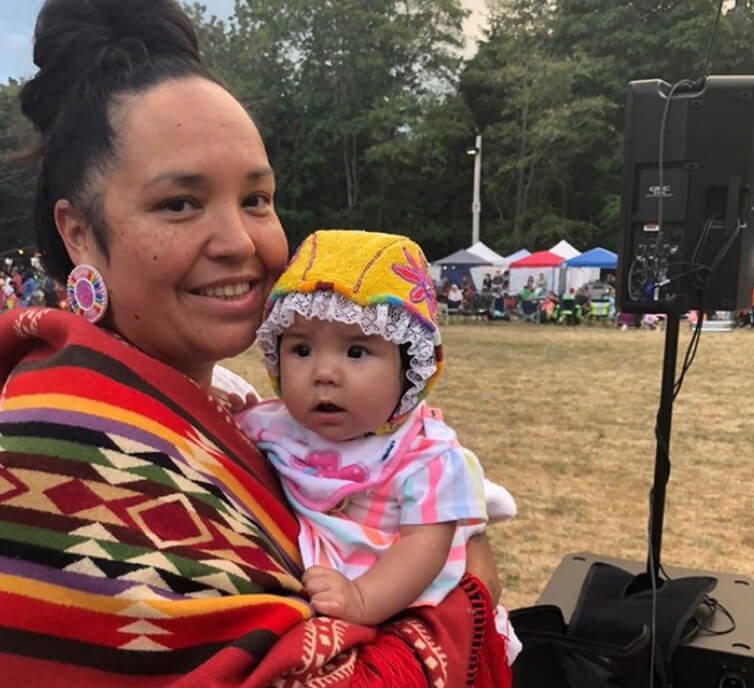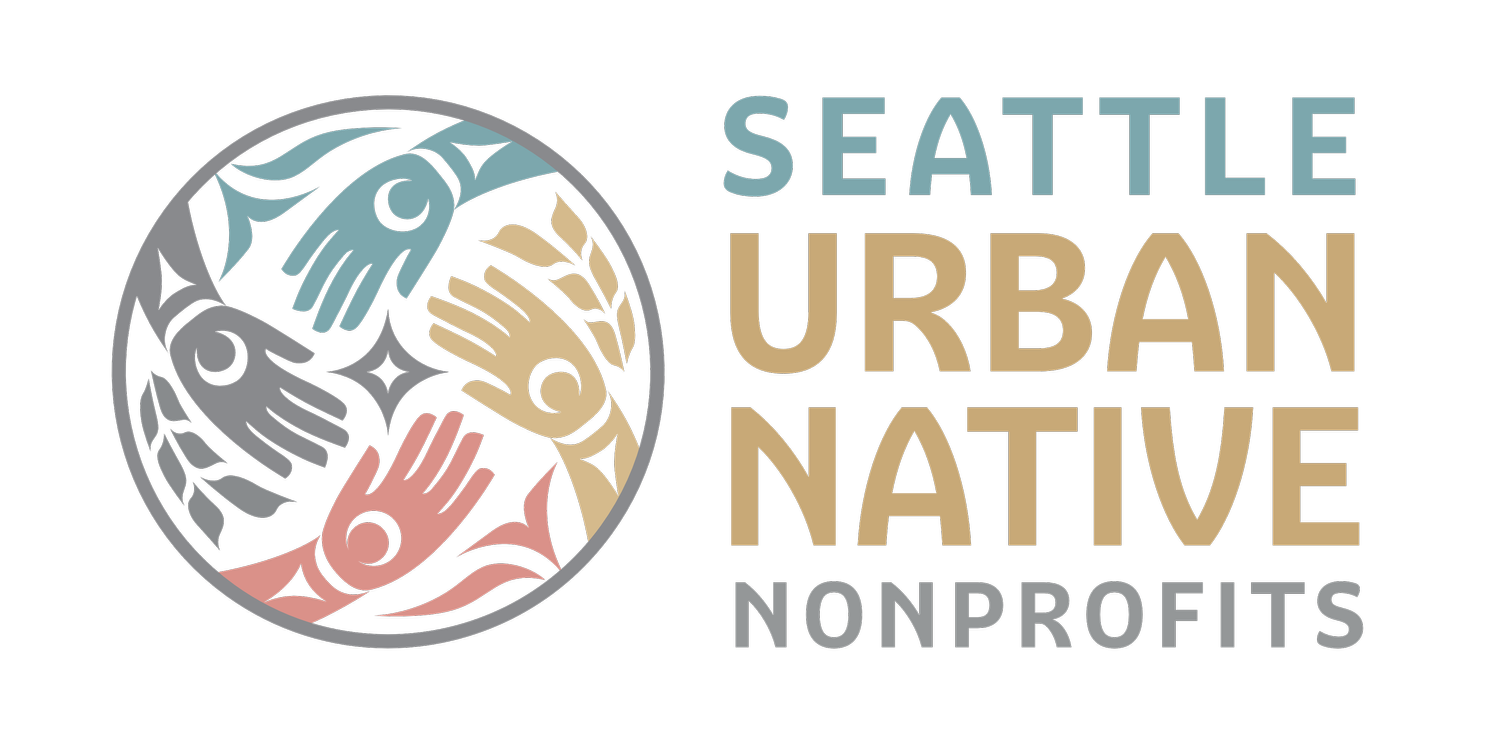NAWDIM – Native American Women’s Dialog on Infant Mortality
Working for infant and cultural survival
NAWDIM is a collective of Native care providers, community members, grandmas and our allies who provide advocacy, education and support for American Indian and Alaska Native infants, moms and families in Washington State.
Since 2001, NAWDIM has convened monthly. Our goal has been to educate ourselves and each other about the realities faced by our Native-child bearers, the data that reflects their journey to parenthood, and to be strategic in how we collaborate to improve practices, policies, and conditions for better birth outcomes.
In 2003, NAWDIM began to offer infant cradleboard workshops to expectant and new moms. In 2017, we began Honoring New Babies each year at the Daybreak Star powwow.
Health, Culture, Social Equity, Community Building
Established: January 2001
Year Joined: Founding Member
NAWDIM – NATIVE AMERICAN WOMEN’S DIALOG ON INFANT MORTALITY
Programs
For 20 years, NAWDIM has worked to engage and educate the urban Native community, tribal partners in the region, state and county health agencies, and the Equal Start Community Coalition.
Community Building
Indigenous birth-givers are born with powerful intuition about pregnancy and childbirth. However, Western medical protocols (hospital births, for example), institutional racism and harmful attitudes from medical providers have disrupted us from the wisdom of our ancestors.
NAWDIM’s work is to nurture the opportunity for Native infants to thrive, because they are the future of our communities. Our Native-led collective seeks to change these facts: Native babies die at a rate more than 3 times higher than white babies in our state. Native mothers experience multiple chronic stressors, in the year prior to conception, at a rate 5 times higher than white women. Our babies are more likely to be born prematurely, and with lower-than average birth-weight. We address these disparities through hands-on, culturally appropriate activities (cradleboard classes and digital storytelling); advocacy for policy change; and collective action towards improving AI/AN lives.
We operate as a collective, because we value and lift up the wisdom of our Native community-serving health and social service providers, advocates. We hold a deep respect for their work, and together have created ways to support one another’s critical work.
